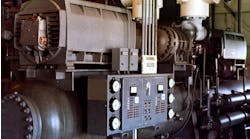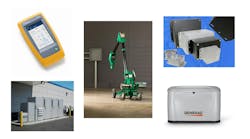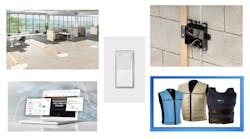EASA Publishes New Study on Maintaining Energy Efficiency and Reliability in Premium Efficiency Electric Motors
The Electrical Apparatus Service Association (EASA) and the Association of Electrical and Mechanical Trades (AEMT) have announced the findings of a new independent study that shows industry best practice repairs/rewinds maintain the energy efficiency and reliability of premium efficiency/IE3 electric motors. The study involved testing 10 new low-voltage premium-efficiency/IE3 motors before and after they were rewound by an EASA Accredited Service Center in accordance with ANSI/EASA Standard AR100-2015: Recommended Practice for the Repair of Electrical Apparatus.
The premium efficiency/IE3 motors studied ranged from 40 hp to 100 hp (30kW to 75kw). Each motor was performance tested at full load when new, then repaired (rewound), and finally retested. All testing was performed in accordance with IEEE Std. 112B at North Carolina Advanced Energy Corporation, the only independent Laboratory Accreditation Program (NVLAP) lab accredited for motor efficiency testing.
The most important test results are the post-rewind efficiency changes. These values range from an increase of 0.3% to a reduction of 0.5%, with an overall average decrease of 0.1%. The average efficiency change for the entire test group falls within the range of accuracy for the test method (± 0.2%). Thus, rewinding caused no efficiency change in individual motors or overall, beyond what would be expected due to inaccuracies in the testing method.
“Maintaining efficiency and reliability in repaired/rewound electric motors is very important to end-users. Electric motors consume as much as two-thirds of the electricity generated in industrialized nations,” says Linda Raynes, CAE, EASA president and CEO. “This study demonstrates that using industry best practices maintains and sometimes even improves the efficiency and reliability of premium efficiency and IE3 motors.”
To obtain a copy of the Executive Summary of this new study and ANSI/EASA AR100, visit www.easa.com.



